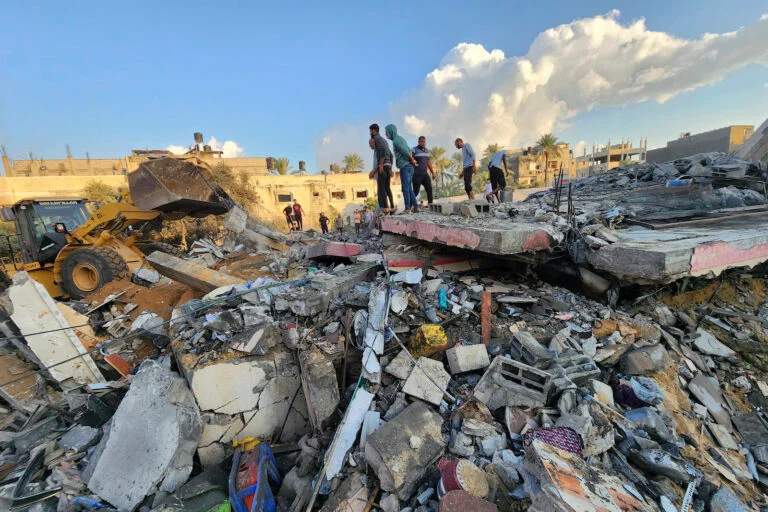Asia
First hostages from Gaza expected to be released on Friday

Delays are already affecting the start of a four-day ceasefire deal between Israel and Hamas to let aid into Gaza and to free dozens of hostages, which was set to go into effect after nearly seven weeks of war.
The truce was due to begin on Thursday at 10 am (0800 GMT) but the exact timing remained unclear as Israel has not yet said when it would pause its air and ground offensive in the coastal area.
An Israeli army spokesman said the process of returning hostages from the Gaza Strip to Israel is complex and not yet concrete.
The military is preparing the implementation of this first phase of the hostage exchange agreement, said Daniel Hagari late on Wednesday.
However, the repatriation of the people abducted to the sealed-off coastal strip could take time and take place in several stages, he said.
“The release (of hostages) will begin according to the original agreement between the parties, and not before Friday,” Israel’s security adviser Tzachi Hanegbi was quoted by newspapers Haaretz and the Times of Israel and the N12 channel as saying.
“The talks on the release of our hostages are progressing and will continue on an ongoing basis.”
The first exchange of hostages kidnapped in Israel for Palestinian prisoners was initially expected to take place on Thursday.
The Times of Israel cited an Israeli official as explaining the delay by saying that both Israel and Hamas would have to sign a document ratifying the agreement for it to come into force.
Haaretz reported that Israeli officials had said there would be no halt to the fighting as long as there is no finalized timeline for the agreement with Hamas.
The agreement foresees 100 hostages being released from Gaza in exchange for 300 Palestinian prisoners held in Israel.
The Israeli Cabinet signed off on the deal early Wednesday after weeks of fraught negotiations mediated by Qatar and the United States.
The deal’s first step involves the release in stages of 50 Israeli women and children that have been held by militants in Gaza since the Oct
7 terrorist attack. In exchange, 150 Palestinian prisoners are to be released.
In a second step, up to 50 further Israeli hostages are also to be exchanged in small groups for up to 150 further Palestinian prisoners.
The ceasefire is to be accompanied by larger aid deliveries for the suffering civilian population in the Gaza Strip, where food, water, electricity, and medical supplies are running scarce.
Israel said the ceasefire will last at least four days but could be extended by one day for every additional 10 hostages released.
A maximum of 10 days is planned for the entire exchange.
After that, the Israeli army’s fight against Hamas and other Islamist extremists in the Gaza Strip is to continue.
Terrorists from Hamas and other Palestinian militant groups carried out unprecedented massacres in southern Israel on Oct. 7, killing around 1,200 people and taking around 240 people hostage.
Of the 240 people who were kidnapped and taken to Gaza, four women have so far been released by Hamas.
One young soldier was rescued by the Israeli military.
The army also found the bodies of two people.
It is unclear how many hostages are still alive.
Local media reported Israel will pass on a first list of names of hostages to be released.
Kidnapped mothers and children were not to be separated.
The Israeli government on Wednesday announced the names and details of the 300 imprisoned Palestinians who are eligible for release from prison.
On list are 123 people under the age of 18, with the youngest being 14.
According to the list, 33 prisoners are girls and women.
They are accused of throwing firebombs, arson, and knife attacks, among other offences.
No prisoners serving time for murder are set for release.
Once free, they are to return to the places where they lived before their imprisonment, such as the West Bank or East Jerusalem.
Shortly after the Oct. 7 attack Israel’s military launched airstrikes on the Gaza Strip and deployed ground troops with the aim of destroying Hamas.
According to the Hamas-controlled Ministry of Health, more than 16,000 people have been killed so far.
The Israeli army said on Wednesday that soldiers have destroyed around 400 tunnel shafts since the start of the war.
Many of the tunnels used by Hamas were found under civilian hospitals, schools, and houses.
The Palestinian Red Crescent said more patients are to be evacuated from the ruined al-Shifa Hospital in Gaza City.
Fourteen ambulances, accompanied by staff from the UN and Doctors Without Borders, arrived at the Gaza Strip’s biggest hospital on Wednesday.
Patients were to be taken to hospitals in the south, where conditions are relatively safer than in the north.




























 Davido's Net Worth & Lifestyle
Davido's Net Worth & Lifestyle 
